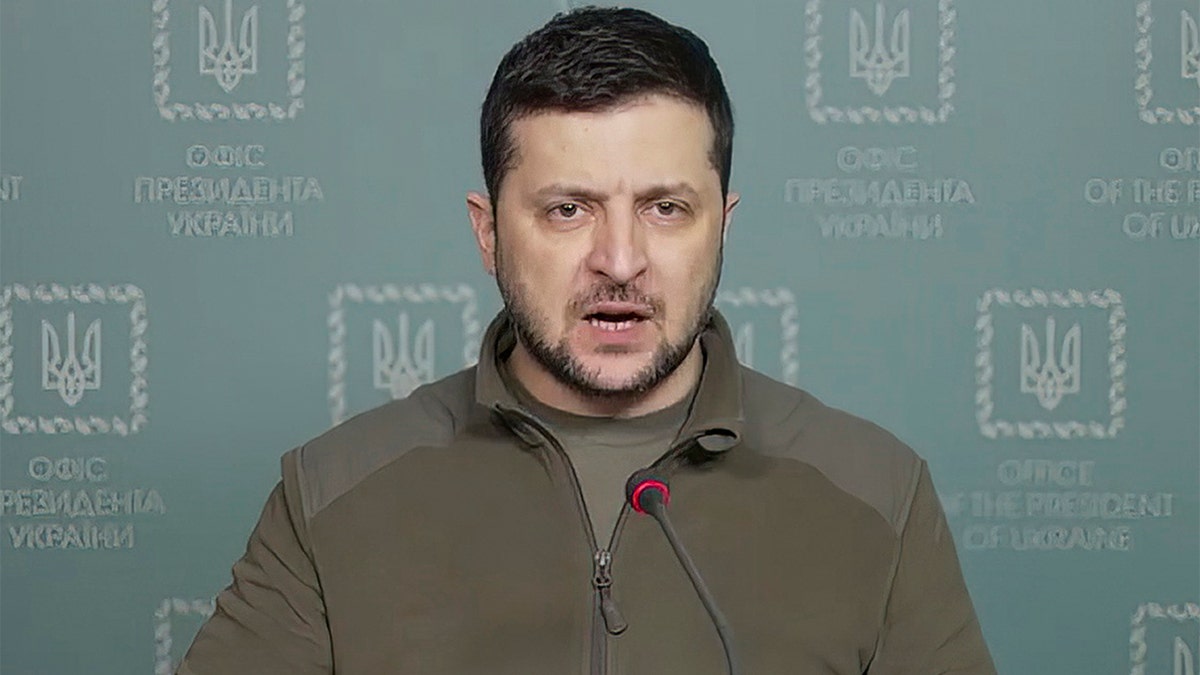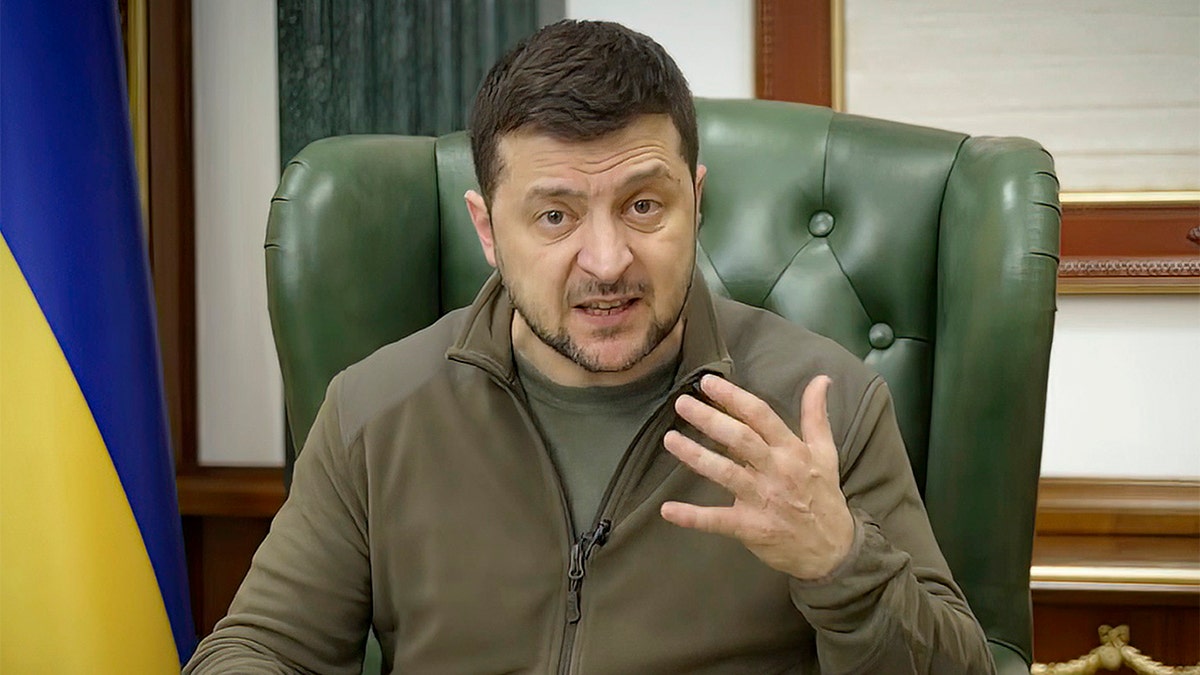Deepfakes part of 'classic Putin playbook': Former DIA officer
Former Defense Intelligence Agency officer for Russia Rebekah Koffler says Putin is trying to 'brainwash' his people and the U.S. audience.
Deepfake technology is now "advanced enough" to "manipulate opinions," according to a cybersecurity expert.
Deepfake videos use artificial intelligence technology to manipulate video footage — usually of a person talking — so that a person may appear to say something they never actually said, which has raised concerns about the spread of political disinformation in the age of social media.
Facebook's parent company, Meta, "identified and removed" a deepfake video on Wednesday that was edited to make Ukrainian President Volodymyr Zelenskyy appear to concede to some of Russian President Putin's demands. It sparked conversation about the use of deepfake technology during wartime crises. Meta does not allow manipulated media such as deepfakes on its platform.

In this image from video provided by the Ukrainian Presidential Press Office and posted on Facebook Tuesday, March 15, 2022, Ukrainian President Volodymyr Zelenskyy speaks in Kyiv, Ukraine. (Ukrainian Presidential Press Office via AP)
"Deepfake technology and techniques to fake video or audio are now advanced enough to be used in targeted content to manipulate opinions, financial transactions or stock prices as examples," Mark Ostrowski, head of engineering at cybersecurity firm Check Point Software, told Fox News Digital. "Awareness is key that these type[s] of cyber activities are open to anyone on the globe to participate in terms of posts on social media channels and applications."
In 2021, experts predicted "where cyber criminals would seek new opportunity in 2022," including "cryptocurrency and mobile wallets, continued supply chain attacks and deepfakes," Ostrowski explained.
RUSSIA INVADES UKRAINE: LIVE UPDATES
"Unfortunately these predictions are becoming reality. Misinformation campaigns is an attack vector that we have seen across many landscapes, the full impact of such campaigns might have not been fully understood in past years," he said.
The deepfake video of Zelenskyy appeared to make him call on Ukrainians to lay down arms, according to Reuters. The video appeared on Facebook, Twitter, Reddit and other social media websites Wednesday.

In this image from video provided by the Ukrainian Presidential Press Office and posted on Facebook March 12, 2022, Ukrainian President Volodymyr Zelenskyy speaks in Kyiv, Ukraine. (Ukrainian Presidential Press Office via AP)
Ekram Ahmed, a spokesperson for Check Point, said that, visually, the Zelenskyy video is low quality, while the audio is good quality
"We’ve seen better deepfakes visually. However, the voice was done very well," he explained. "Hence the deepfake is still dangerous in spreading false narrative."
UKRAINIAN TV CHANNEL SAYS RUSSIAN HACKERS AIRED FAKE ZELENSKYY STATEMENT
The online attention given to Russia's invasion in Ukraine has opened up both opportunities for Ukrainian officials and civilians to share information about the war, as well as opportunities for bad actors — particularly Russian bad actors — to launch cyberattacks and other technological crimes against Ukraine and its allies.
A Ukrainian TV channel claimed on Wednesday that Russian hackers aired a fake statement from Ukrainian President Volodymyr Zelenskyy. The false statement from Zelenskyy broadcast on Ukraine 24 TV by Russian hackers purportedly mentioned a "surrender," according to a translation of a Telegram post from the TV channel.
"[W]e have repeatedly warned about this," the TV channel said. "This is a fake! Nobody is going to give up."
The Ukrainian Center for Strategic Communications and Information Security issued a similar warning on Wednesday after the channel was apparently hacked.
CLICK HERE TO GET THE FOX NEWS APP
"Russian hackers broke the news feed on Ukraine 24 TV and launched a false ‘statement’ by President Vladimir Zelensky about the need to lay down weapons," the communications center said in a statement posted to Facebook.
Ostrowski suggested that people should "beware of fast-spreading news from sources that are not from official and reliable sources; [c]heck the origins of the information," such as date and time stamps, and "don’t click on links where the origins are unfamiliar."
Fox News' Adam Sabes contributed to this report.


